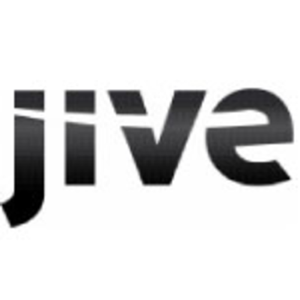Last night, Jive Software released its Jive Apps SDK to developers. For Jive, this isn’t just an SDK release: it’s the beginning of a new direction. Jive assigned twice as many developers to building its application platform and Jive Apps Market as it did to developing the previous release of Jive. And that’s an indication not just of where Jive is going as a company, but where the enterprise software market seems to be headed. Salesforce.com made it clear last week that it is now a platform company vendor first and a SaaS company second. Companies such as Jive, Salesforce.com and Google are not just trying to copy the success of app stores in the consumer market, but create a whole new paradigm for enterprise software.

Here’s the picture Sameer Patel, of the Sovos Group, paints in a Dreamforce wrap-up post:
Here’s what I sense: Those very CIOs that choose to buy all apps from one vendor (Oracle, SAP, etc.) do so for many reasons, but one of them is architectural convenience. They realized then that every application procured from said vendor is not going to be best in class. But when it comes to some applications, ‘living with good enough’ was a welcome tradeoff to integration headaches of a best of breed approach.
What Salesforce.com seems to be doing now is setting the foundation for a standardized cloud based operating systems and development environment, yet offering the convenience of picking from a plethora of application choices for each conceivable system-of-record category via force.com to fits each customers business needs. That might just be the ticket some CIOs need to get unsatisfied business users off their back: Standardize the platform element to prevent a hodge podge architecture but shift the risk functional selection out of IT and back to business owners who can now make the decision on which application to select.
This is exactly what Jive is trying to accomplish. During the Jive Social Business Developer Summit last night, Chief Strategy Advisor Christopher Lochhead claimed that Jive can offer the enterprise the best of both worlds: a monolithic architecture and best-of-breed solutions.
It makes a lot of sense for Jive to go this direction. Most of the basic functionality of social software suites is commoditized, and there are a lot of vendors to choose from. An app stores open up new avenues for innovation and Jive can take a piece of each sale. We expect to see more vendors moving in this direction.
But is it what enterprises want? Jive CEO Tony Zingale says it is. Zingale told us that Jive has been talking to customers about the concept for months. End-users want the selection and ease of use of an app store. CIOs need to monitor and control how data is being moved in and out of the enterprise.
Lochhead recounted a story he’d heard about an employee who sent his department’s annual budget to the company’s CFO using the Web-based file sharing service YouSendIt. The CFO, understandably, was livid. We’ve covered how users are taking IT issues into their own hands via freemium solutions in the past. Jive hopes to prevent these sorts of situations by giving employees another avenue for finding apps that solve their problems, without causing headaches for IT and compliance.
When asked if Jive could ever become a pure platform company and give up developing its own social software products, Zingale says he still thinks certain features (such as forums) are core to what Jive does as a company. But he says the company is completely open to having competing products in its app store. “If someone comes along with a better microblogging solution they are absolutely welcome,” he said. “I bet there are better analytics solutions that could come in, for instance.”
Will developers develop for the platform? Jive has already signed up more than 100 partners, including Box, Gliffy, Manymoon and UserVoice. Everyone talks a good game about “openness” these days, and Jive does appear to be walking the walk. Applications can be built using any programming language and integrated into the Jive Apps framework through open standards such as oAuth and OpenSocial. This makes it easy for developers to get involved.
Manav Monga, co-founder of Manymoon, says the company was able to get up and running on the Jive Apps framework in a matter of minutes. Manymoon is already in the Google Apps Marketplace and LinkedIn’s Application Directory, both of which use oAuth, so Monga says it will be easy to port the application to Jive Apps. “Every platform has its own implemantion of oAuth,” he notes. So it will take some work to produce a finished product for Jive Apps, but it was very quick to get started.
The other big advantage Jive is giving application developers is marketing and billing. Monga says that promoting Manymoon through app stores helps them save valuable marketing dollars and avoid having to convince companies to move to the cloud. And for a company as small as Manymoon, billing can be a burden. Monga hopes that Jive will give Manymoon the chance to grow in larger organizations.
Although Salesforce.com’s Force.com App Exchange has a head start on Jive, Zingale isn’t particularly worried. “In my view, Force.com has been a failure,” he says. “Heroku is awesome, but why pay $212 million for a company without any revenue?”
Although Force.com has been around for years in its original form, its new form is just getting started. And it’s clear that the competition between enterprise app stores is only just beginning. Microsoft already has a Windows Azure DataMarket and an AppMarket. Don’t expect other big enterprise vendors to get left behind by this. That might be bad news for Jive and Salesforce.com, but more platforms and more competition will probably be good news for CIOs, end-users and developers.
Disclosure: Jive Software paid for Klint Finley’s plane ticket and accommodations for him to attend its Social Business Developer Summit

















